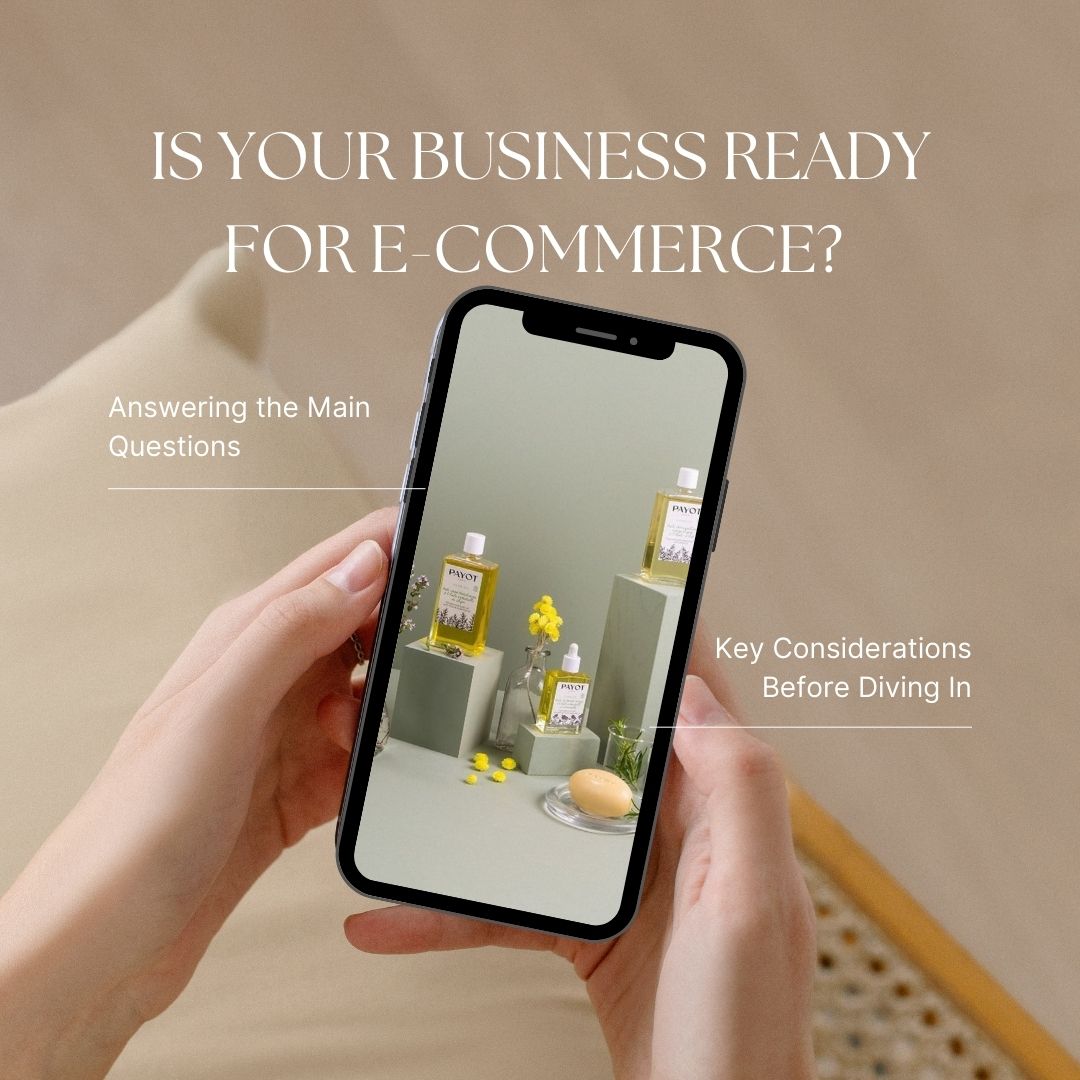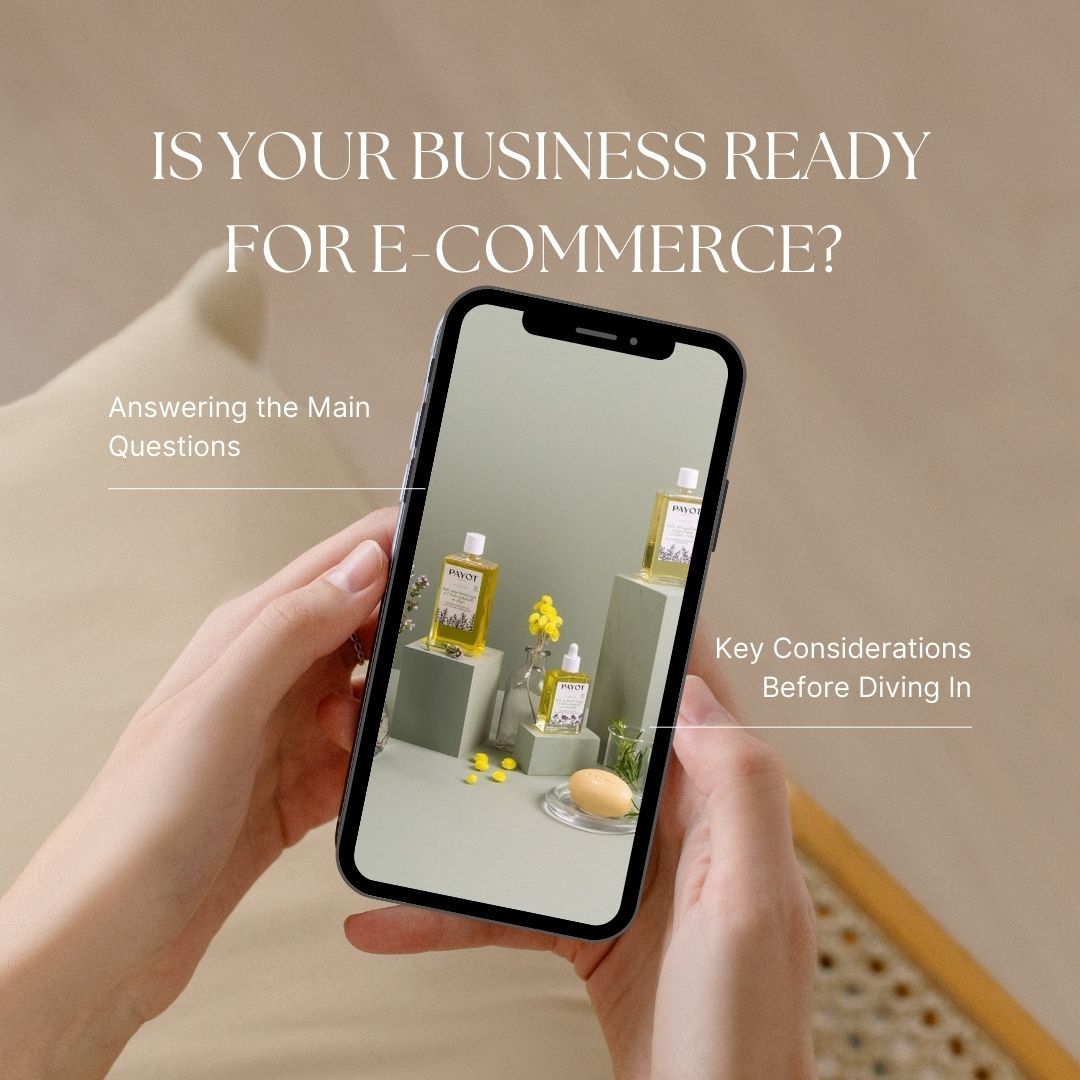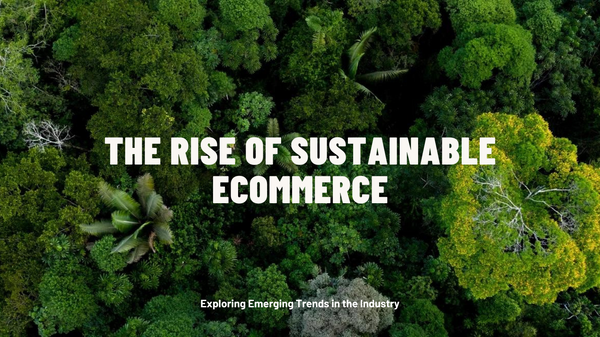Starting an eCommerce business is tempting. The internet is full of success stories, and who doesn't want to be the next big thing? But before you jump in, it's smart to stop and think. What does it really take to get an online store off the ground? Let's take a step back and look at what you need to sort out first.
The digital marketplace is booming, and it seems like just about every business has caught the online wave. Here we are, nearing the end of 2023, and it's hard to find a business that hasn't staked its claim in the virtual world. The latest scoop? Pretty much every small and medium-sized business in the States is flaunting an online presence, with the stragglers about to take the plunge.
Thinking of starting your own online venture? Sure, you might be itching to get that website up or start stocking up on goodies to sell, but hold your horses. The real deal is to first make sure your business idea has legs. Dive into our up-to-the-minute insights on eCommerce and mCommerce trends from the past few years to now, and you'll see just how vibrant and ever-changing the online bazaar is. These insights aren't just numbers and graphs; they're the compass that can guide your digital commerce strategy to resonate with today's tech-savvy shoppers.

Figuring out if your eCommerce brainwave is a goldmine or a pipedream is easier than you might guess. Just ask yourself:
- What unique value will customers find in your products?
- Are customers inclined to pay a price that not only covers your costs but also ensures profitability?
- Have you mapped out the legal and logistical framework for setting up your business?
Before you pour your heart, soul, and bank account into your eCommerce venture, make sure your idea can stand up to the test.
We've cooked up this article to walk you through the nitty-gritty of research and the big questions that need answering. It's all about getting crystal clear so that your online business does more than just exist—it thrives. Ready to get started? Let's jump in.

What is considered eCommerce?
E-commerce isn't just a buzzword. It's the battleground where modern business wars are won and lost. It's where goods, services, and money zip around the globe with a click or a tap. Whether it's Business to Business (B2B), Business to Consumer (B2C), Consumer to Consumer (C2C), or Consumer to Business (C2B), e-commerce is the electric current powering today’s marketplace, transferring not just funds and data, but also ambition and innovation.
Picture this: an up-and-coming entrepreneur with a slick line of luxury pet accessories. In the pre-internet glory days, they'd be hustling door-to-door or pitching to big-box retailers. Fast forward to now, and e-commerce has flipped the script. They can catapult their brand right into the spotlight, selling through their own online store or hitching a ride on established e-commerce platforms. It's a brave new world where the little guy can make big waves, all thanks to the digital leap of e-commerce.
Launching an e-commerce business? Here's the arsenal you'll need:

Brand Identity
Your business name is the seed from which your brand's story grows. It should be distinctive, evocative, and enduring. This is the inception of your brand's journey – a journey that should be clear and compelling to anyone, whether they're five or ninety-five. When crafting your brand's narrative, consider the origins of your idea, the 'why' behind its creation. This story should resonate clearly through your branding, making your mission evident and your brand's purpose relatable to every potential customer who crosses your path.
Domain and Hosting
Your domain is more than just a digital address; it's the beacon that guides customers to your virtual doorstep. Opt for a domain name that's not just resonant but also succinct and easy to type – a name that sticks in memory and rolls off the tongue. And when it comes to hosting, reliability is key. Choose a host that keeps your site swift and accessible, because in the e-commerce world, downtime is the enemy of profit. Your online doors need to be welcoming customers 24/7, without a hitch.

Product Showcase
Before you set this all in motion, dive deep into audience research. Understand the pulse of your market – what products they crave, the service expectations they harbor, and the lifestyle your brand could enhance. Sometimes, you'll uncover needs they haven't even voiced yet. Your content should not just showcase a product but narrate the story it weaves into the customer's life. Observe your competitors, differentiate your offerings, and position your brand as the unique solution in a sea of sameness.
Your products are the heroes of your story. Present them on a stage that's worthy – with crystal-clear images, engaging descriptions, and genuine reviews that build trust. But don't just sell a product; sell the dream, the solution, the lifestyle it enables. Your marketing should tap into your customers' desires, addressing not just the pleasure of owning your product but also the pain points it alleviates.
Mobile-First, Desktop-Friendly
In the e-commerce arena, a seamless mobile experience isn't a luxury; it's table stakes. Your store should dazzle on desktops but prioritize pocket-sized screens. Because in the hustle of today's world, the power to purchase rests in the palm of your customer's hand.
Selecting the Ideal CMS for Your Online Store
The backbone of your online store is the Content Management System (CMS) you choose. It's essential to select a platform that's not only user-friendly for you and your team but also SEO-ready to ensure your products get noticed. Among the top contenders for building a robust e-commerce presence are Shopify, Magento, WordPress, and Bigcommerce. Each offers a unique set of tools and features, so choose the one that aligns best with your business goals and technical expertise.
Timing Your E-commerce Launch: Is Now the Moment?
With your brand's name, domain, hosting, CMS, and store optimization ready, you might be itching to hit the launch button on your e-commerce venture. But hold that thought—is it truly the right time? The most critical factor you haven't considered yet might just be customer research. It's easy to dismiss this step in the thrill of bringing a new idea to life, but for any business, validating your concept is the cornerstone of future success.
Rather than pouring resources into an untested idea, take a step back. Ensure you're not just ready to enter the market but poised to disrupt it with confidence.
Before you declare your business e-commerce ready, reflect on these essentials:
Product Selection
When it comes to product selection, your inventory strategy is pivotal. In 2021, niche businesses saw a surge in consumer interest, with reports indicating that specialized online stores grew by an average of 80% in revenue compared to the previous year. This trend underscores the importance of carving out a specialized niche—whether that's sustainable fashion, artisanal foods, or cutting-edge tech gadgets. The key is to offer products that resonate with your passion and values, setting you apart from generic offerings of large retailers. It's not merely the items you stock; it's the story they tell and the problem they solve that will captivate your audience.
Market Competition
The e-commerce ocean is teeming with fish, big and small. A crowded marketplace isn't a deterrent; it's a testament to the potential. In fact, the latest data from IBISWorld shows that e-commerce in the United States has grown at an annualized rate of 16.5% over the five years to 2023. To navigate these waters, you need to understand the currents—what your competitors are doing right and where there's room for innovation. Conducting a thorough competitive analysis will help you identify gaps in the market that you can exploit to create your own niche.
Inventory and Fulfillment
Deciding between holding inventory or opting for a drop shipping model is more than a logistical choice—it's about aligning with your business vision and customer expectations. As per a 2022 survey, 63% of online shoppers cited fast shipping as a key factor in their purchasing decisions. Your fulfillment strategy must therefore balance cost-effectiveness with speed and reliability. Whether you're utilizing a spare room as your warehouse or leveraging the global network of drop shippers, your approach must be scalable and adaptable to the changing demands of e-commerce.
Unique Selling Proposition (USP)
In a market flooded with options, your USP is your beacon. It's what signals to customers why they should navigate towards you. This could be your commitment to eco-friendly practices, exceptional customer service, or innovative product features. In 2023, personalization is not just a buzzword; it's a customer expectation. A study by Epsilon indicated that 80% of consumers are more likely to purchase from a brand that provides personalized experiences. Your USP should tap into this desire for a tailored shopping experience, distinguishing you from the competition.
Return Policy
A clear and concise return policy isn't just good practice—it's a cornerstone of customer trust. In the current year, with online returns at an all-time high, a straightforward policy can be the deciding factor for customers on the fence. Will you offer free returns, absorbing the cost to boost customer confidence? Or will you implement a restocking fee to offset logistics costs? These decisions should reflect your brand's commitment to customer satisfaction and trust.
Payment Processing
The checkout process is the final hurdle in the customer's purchase journey, and it needs to be seamless. With digital wallet usage expected to increase by 40% by 2024, offering a variety of payment options is essential. Services like PayPal, Stripe, and Square are not just conveniences; they are expectations. Your e-commerce platform should integrate these options smoothly to ensure a frictionless transaction for every customer. (ссылка на статью)
Tax Considerations
Sales tax compliance is a dynamic challenge in e-commerce. With states continually revising tax laws, especially in the wake of South Dakota v. Wayfair, Inc., staying informed is critical. In 2023, it's not just about collecting taxes but about understanding the nuances of nexus and the implications of cross-border sales. Partnering with a knowledgeable accountant can save you from future headaches and ensure that your e-commerce business is fiscally sound and compliant.
As we embrace 2023, these elements are not mere considerations; they are the building blocks of a robust e-commerce business. They are what will enable you to not just meet but exceed the demands of a digital marketplace that's in constant flux.
Launching Your E-Commerce Journey: The Green Light
Embarking on the e-commerce journey is an intricate dance of strategic planning and execution. As we've outlined, the path to selling online is layered with critical considerations—from selecting the perfect product mix to fine-tuning your fulfillment strategy, and from carving out your unique market position to crafting a seamless customer experience.
But the groundwork doesn't end there. The digital marketplace is dynamic, and your agility in marketing and SEO will be pivotal to your success. As you gear up to launch, remember that your online visibility is as crucial as the quality of your products. A well-thought-out SEO strategy will ensure that your store ranks high in search results, connecting you with eager customers.
To aid you in this essential aspect, we've compiled 'The Ultimate SEO Checklist for E-Commerce Success', a comprehensive guide to help you navigate the complexities of SEO in the e-commerce landscape. You can access this valuable resource here: The Ultimate SEO Checklist for E-Commerce Success.
With these tools and insights at your disposal, you're now ready to take the plunge. Set your sights on your goals, launch with confidence, and prepare to join the ranks of successful online entrepreneurs. The digital world awaits your unique offerings, so let's get started.
Want to create your own eCommerce website, talk to our expert.



